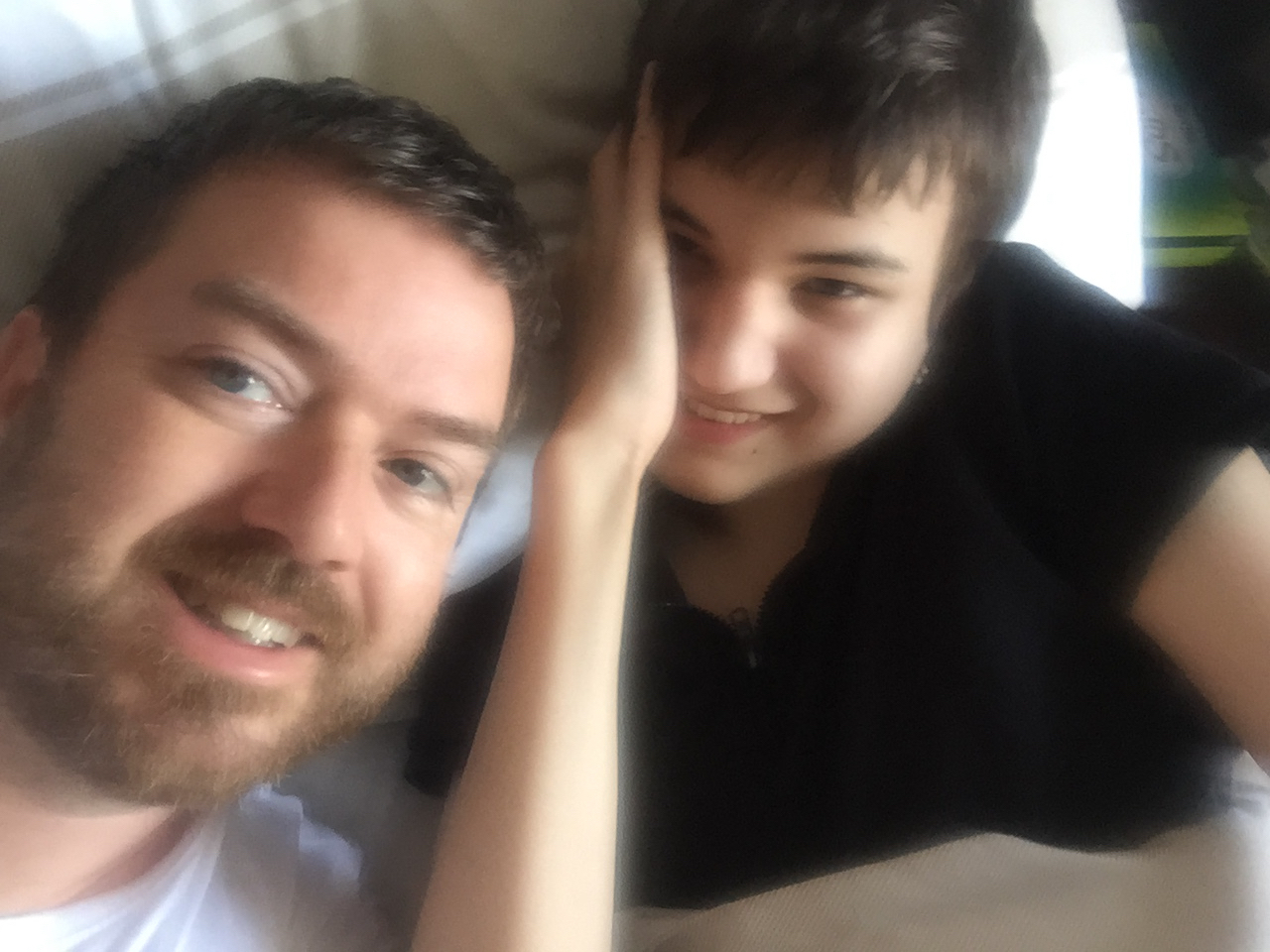‘Faith more important than healing?’
Maybe we should think about our own motivation for praying for healing for others; is there a risk that we are praying for healing for a loved one because that might make our life a little easier?
28 FEBRUARY 2019 · 16:37 CET

I sometimes get asked what my views are on divine healing; whether I believe that God heals people, why he might heal one person and not another, even whether I’ve ever prayed for healing for James. At a recent conference that I was speaking at I was asked this again, in the context of whether it is right to pray for the healing of someone else, someone who may not have even given their consent to be prayed for, in this case a child.
A lot of questions here; big questions, big implications for them… So, here we go…
Can God heal? Yes, there are many examples in the Bible, particularly but not restricted to the Gospels, where people are healed of a wide range of conditions. The blind see, the deaf hear, those that cannot walk are able to walk again and many more, often witnessed by crowds of people. Some of us will also have contemporary accounts of healing that we have witnessed. Not the fake healing of the TV evangelist, but genuine divine healing of someone brought about through earnest prayer. God can and does heal.
So why some and not others? Isn’t that unfair? Of course none of us can know the mind of God… that’s not a cheap cop-out, it’s reality. Perhaps God heals some and not others because in eternal terms this is the wisest, best outcome. Perhaps by healing someone, the opportunity for others to be reached with the good news of Jesus might be lessened.
Let me give you an example of this, while at the same time answering the question about whether I’ve ever prayed for James to be healed of his Autism…

I soon learned, however, not only to accept James for who he is, but to love his differences, to celebrate the changes that he brought to our family, to our worldview, to our faith journey, and to how God started to use us. I stopped praying for James to be ‘healed’; if James didn’t have ASC, he wouldn’t be James, he wouldn’t be the same boy, he wouldn’t be the same inspiration to me that gets me up every morning excited at the opportunities ahead. If James had been ‘healed’ of ASC, I doubt I would have the same motivation and drive to lead an additional needs ministry at Urban Saints, to have co-founded the Additional Needs Alliance, to work hard to make life better for the one-in-five children in the UK who journey with additional needs or disability. There could have been significant negative impact if James had been ‘healed’ of ASC.
When I pray for James now, I pray also for myself; I pray that I might understand his world better, to be able to support and help him more effectively, to be able to understand and help him to develop his limited communication. I don’t pray for James to be ‘healed’ so that he can fit neatly into my world, I pray that I might be able to join him in his world and appreciate it, and him, better. And in praying in this way, perhaps it is me that receives the healing…
In Luke 5:17-26, a man who couldn’t walk was brought to Jesus by his friends. There was quite a crowd and they couldn’t get near to Jesus, so they went up to the roof, made a hole in it and lowered their friend through. What happened next is significant… Jesus saw the man, recognised his faith and that of his friends, and… forgave him for the wrong things he had done. The man’s faith, his eternal salvation, these were the things that were important to Jesus. He subsequently did heal the man’s legs, but only to prove his authority on earth…
So what does all of this say to us about what our attitude to healing should be? Well, perhaps there are three things for us to think about from what we’ve explored together:
1. God is more interested in our eternal future than our current physical or mental situation. Perhaps we should focus more on how we reach everyone, including those with additional needs or disability, with the good news of Jesus Christ, than whether God is going to heal us, or our loved ones, in this life.
2. Maybe we should think about our own motivation for praying for healing for others; is there a risk that we are praying for healing for a loved one because that might make our life a little easier? Would healing actually be the best thing for our loved one? What should we really be praying for?
3. We should celebrate all that is different for us because of our journey with someone with additional needs or disability. Think about all the positive ways that our lives, our worldviews, have changed. How can we use these changes to help others, to be God’s blessing to others on a similar journey, to see God turn what we might have seen as a negative into a positive? And in doing this, perhaps it is us that receives the healing…
We’ve grappled with some big questions here, and pondered on some big answers… You may not agree with all I’ve said, and that’s fine, we’re all different; but keep asking, keep praying, keep searching for your answers, and let’s keep walking on the journey together…
Mark Arnold, Director of Additional Needs Ministry at Urban Saints. Arnold blogs at The Additional Needs Blogfather. This article was re-published with permission.
Published in: Evangelical Focus - The Additional Needs Blogfather - ‘Faith more important than healing?’
